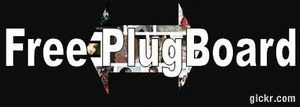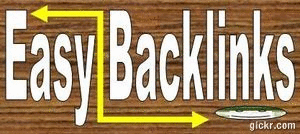Many people think meta tags are the
magic solution to ranking well. Create the perfect combination with the perfect keyword density and presto! Well, that is
far from being true - there is more to SEO than good meta tags and there are also many off-page factors. However,
it does help to have highly optimized Meta tags.
What are Meta Tags?
Meta tags are parts of an HTML document that are used for you to describe the page content for search engines. Meta tags are placed within the head area of an HTML file and with the exception of the Title tag; your visitors do not see them as part of the viewable area of the page.
How to write meta tags correctly:
Why are Meta Tags important?
The primary reason they are considered important in search engine positioning is that you have some ability to direct how your pages are described, categorized and indexed by various search engines. Don't be misled; creating the perfect Meta tags does not mean you will zoom to the top of the pack; many search engines do not assign much value to the majority of Meta tags.
Which search engines support Meta Tags?
Crawler-based search engines have the ability to utilize the meta tags; however, not all of them do so. Most will support one tag or the other but rarely does a search engine support them all. Crawler based search engines include: Google™, Teoma, Alta Vista, Inktomi, AllTheWeb and others. Directory based search properties like
Yahoo Directory and
Open Directory do not spider your pages; they rely on the description you supply to them when you submit your page.
How to write a good title tag
The title tag is not really a meta tag; however it does appear in the head area of your page along with the various meta tags and it is the most valuable tool to describe your page to the search engines. It is an extraordinarily
important factor in how search engines rank and list your web site.
What search engines use the Title tag?
Just about
all major search engines use the title tag in some way and many use it to compose their listing. When creating the title for each page you want to include your primary search terms or keywords and create a concise description of the page in general. The title tag is also used as the text to describe your page when someone adds it to his or her favorites list and it displays in the title bar of their browser, so, it is important to make it clear and descriptive.
Guidelines to writing a good title:
Create a title that is between
4 and 12 words. Remember, this is a guideline and not a rule. Each search engine has different maximum values for the title area. In any case, try not to exceed 63 characters because sometimes your title will be truncated.
Always use your keyword(s) in the title and aim for a keyword density of 20-35%. Example: Your keyword is "widgets". Your title could be: "Buy widgets at ABC Widgets Company" and since we used widgets twice within 6 words the density is 33%. This may not always be possible if you are targeting more than one keyword.
The important thing is to make certain your title is highly descriptive of your page but try not to dilute the effectiveness of your keyword by adding too many other words.
Don't use just the Company Name. Think "keywords" when writing the title. Try to put your keywords as close to the beginning as possible.
The Meta Description Tag
The Meta description tag allows you to write a short description of the page, however, it is not fully supported by search engines.
What search engines use the Meta Description?
Of the major search engines:
AltaVista,
AllTheWeb and
Teoma make most use of the tag.
Google™ automatically creates its own description from content snipets. Others may support it partially. Directories (like Yahoo Directory) are not search engines and they rely on
the description you supply when you submit.
Guidelines to writing a good Meta Description:
Limit the total description to approximately
200 to 250 characters. Although some search engines may support more when indexing the page, they may only display a smaller quantity of characters.
Use at least one of your
keywords near the beginning of the description.
Using
12 to 24 words total (and not exceeding the character limit) seems to be a good range for most search engines.
The Meta Keyword Tag
The meta keyword tag allows you to list the keywords for the page; however, most search engines do not support this tag.
What search engines use the Meta Keywords Tag?
Of the major search engines: Inktomi and Teoma are the few that even take this tag into consideration.
Guidelines to writing a good Meta Keyword tag:
List the primary keywords that pertain to this page.
Put the most important words at the beginning of the tag.
If you don't use your keywords within the viewable text of the page, then just adding them to the meta keywords tag is very unlikely to help with rankings for those keywords. However, some use the meta keyword tag as a place to put alternatives or misspellings of their keywords even though they are not on the viewable text. It is not clear whether this helps or not, but it won’t hurt.
Don't use this tag to “stuff” or repeat keywords. This doesn't help and could hurt with some search engines.
The optimal number of keywords should be between 7 and 48 words.
The Meta Robots Tag
The meta robots tag allows you to control whether or not you want the page to be indexed by search engines. By default, search engine spiders (crawlers) will try to index every page and follow links from one page to the next. The best use of the meta robots tag is when you want to keep the search engine spiders OUT and not let them index a page.
Guidelines to writing a Meta Robots tag:
Make certain you double and triple check your code when using this tag. Improperly formatted tags or the wrong usage could keep search engines from indexing your pages or even your entire web site.
If you use robots.txt file to block search engine spiders, you do not need to use the meta robots tag.
If you want the search engines to index your site, you really don't need to use the tag.
Always place it in the head of the document.
Examples of proper formatting:

Translation:
Index this page and follow all the links to other pages.
DO NOT Index this page but follow all the links to other pages.
Index this page but DO NOT follow the links to other pages.
DO NOT Index this page AND DO NOT follow all the links to other pages.
Note: Never put more than one meta robot tag on the page or more than one directive in the content area of the tag. Use the tools provided by InstantPosition.com to create your robots meta tag with index and follow already properly placed.
Other Meta Tags
There are many other meta tags besides the ones we've discussed, however, none of them will improve your search engine ranking. Some are for internal search methods and some (such as the revisit tag) have no effect with search engines. In fact, meta tags like the "refresh" tag have been used to "trick" search engine spiders and are now regarded as something that could hurt your ranking with some search engines.
Summary: What Meta tags are important?
The Title Tag: Is very important and has full support
The Meta Description: Is somewhat important and has some support
The Meta Keyword Tag: Is of low importance and has limited support
The Meta Robots Tag: Is only important if you don't want pages indexed
Other Meta Tags: Are not very important in search engine ranking
The Bottom Line
In conclusion, writing good meta tags is only one small part of optimizing your pages for higher positioning. This can be evidenced by the fact that there are many pages in the search engine indexes that rank high without even having meta tags at all. Having good content and using the correct keywords within your content is far more essential. Once you have good content, focus your attention on no more than three keywords per page and then use those words in the title, meta tags and repeatedly in the viewable text on the page. The only truly important meta tag is the Title.
 anywhere in your new post or old post.
anywhere in your new post or old post. 

 Translation:
Translation:










































































